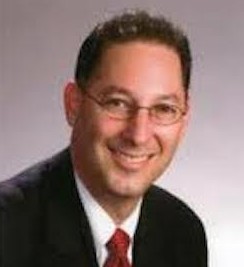Who was Heraclitus and why would his river have anything to do with criminal psychology or rehabilitation?
Here’s an examination of some ideas that revolve around Heraclitus’ most famous saying, advances in criminal psychology and rehabilitation.
Heraclitus, a Greek Philosopher
Heraclitus was a Greek philosopher who said that we could never wade in the same river twice. He was referring, on one level, to the way water washes past the land and that the droplets that are there one moment are gone away downstream the next.
Advances in Criminology
An article written for the journal, European Psychology, entitled Heraclitus’ River and Advances in Criminology by Alexander F. Schmidt and Ruth E. Mann, suggest that “advance” might be overstating the study of criminology. They contend that many of the practices currently in use were around during the 19th century. Some of them have, they add, have proven useful, while others that are still in use are less than efficacious in reducing crime or making productive citizens out of criminals. They lay out several types of crime but focus on sex offenders – a group that is often considered to be incorrigible. They continue their discourse with the idea that when social bodies become focused upon retribution, especially where emotional involvement is high, the resultant punishments do little to correct or prevent crime. In short, they believe that current criminology does, indeed, try to fish in the same river. In fact, they state that it is more a case of revolving rather than evolving, rather like a confused shopper caught in one of those glass entry doors.
Can There Be Change?
The cover story for the July/August 2003 American Psychological Association’s publication, Monitor on Psychology, made the succinct statement: “It’s not a very good time to be a prisoner in the United States.” The article goes on to elaborate, covering budget shortfalls, over-crowding, lack of psychological oversight and an ever-growing number of mentally ill people who are incarcerated in prisons. Prison, the article points out, is not meant to cope with the mentally ill. The staff are not equipped for it, and such psychologists who work in the prison system are stretched thin.
Rationale for Rehabilitation
In the early 1970s, there was a push to “get tough on crime.” Programs that had been designed to educate and rehabilitate fell by the wayside and a “nothing works” attitude toward getting people to turn aside from a life of crime developed.
By now, we have available much more information than was available even twenty years ago. There is a massive amount of literature documenting the effects of poverty, child abuse, malnutrition and more on the mental health and social capabilities of individuals.
The Ultimate Goal
The end goal is, of course, to have fewer criminals and more industrious, appropriately socialized citizens. There is a quotation in the Schmidt and Mann paper that reminds that youngsters need moral training and guidance, training and useful work, comforts, and healthy food. The source for the quotation was written in 1882. Perhaps we are trying to fish in the same stream.

